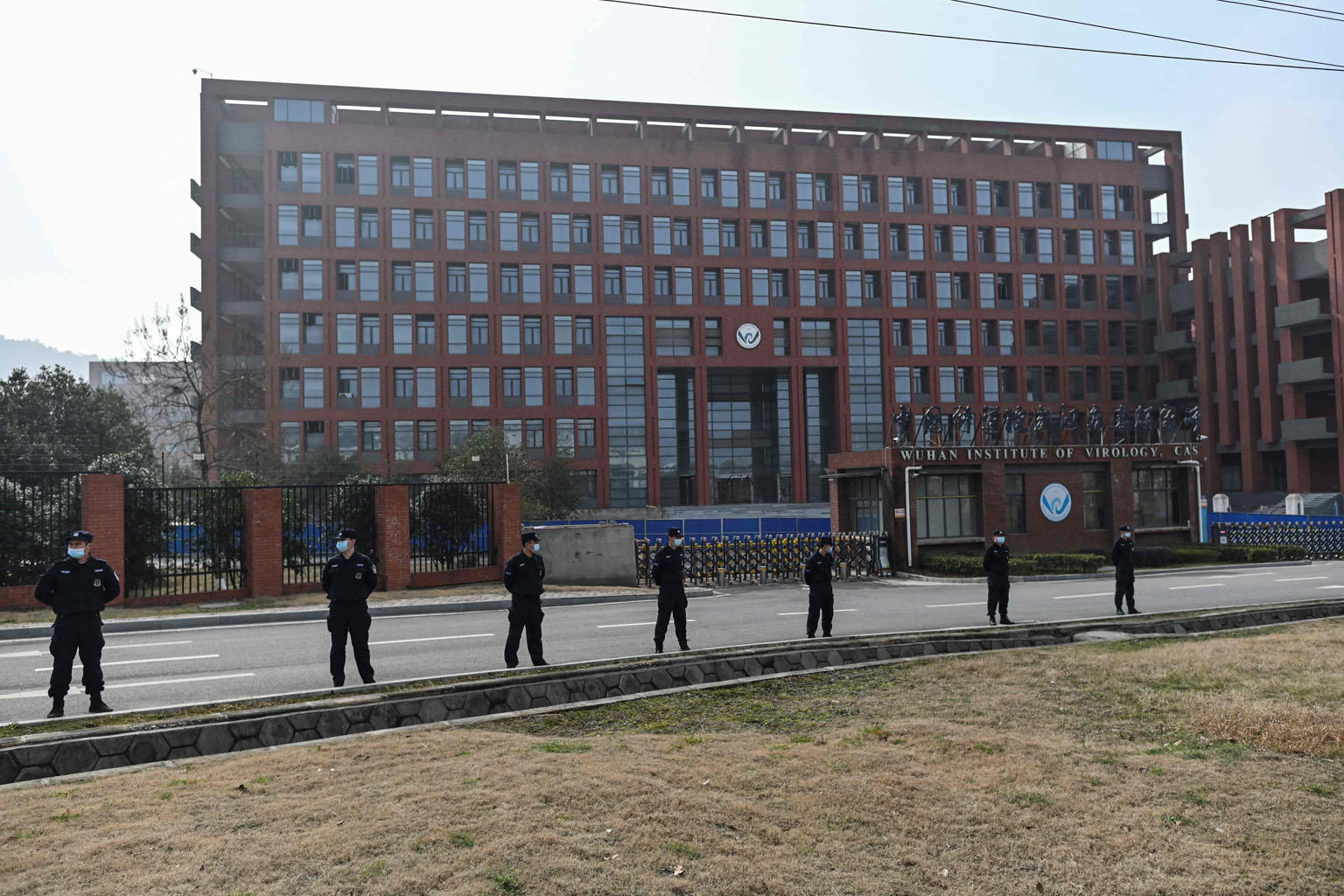Coronavirus China
Covid-19 virus may have leaked from Wuhan lab, US report finds
American officials accuse China of not being transparent about virus' origins
Sign up now: Get insights on Asia's fast-moving developments

A February photo of the Wuhan Institute of Virology in China, during a visit by a WHO team investigating the origins of Covid-19.
PHOTO: AGENCE FRANCE-PRESSE
BEIJING • A report on the origins of Covid-19 by a US government national laboratory has concluded that the hypothesis of a virus leak from a Chinese lab in Wuhan is plausible and deserves further investigation, the Wall Street Journal (WSJ) said, citing people familiar with the classified document.
The study was prepared in May last year by the Lawrence Livermore National Laboratory in California and was referred to by the State Department when it conducted an inquiry into the pandemic's origins during the final months of the Trump administration, WSJ said on Monday.
Lawrence Livermore's assessment drew on a genomic analysis of the coronavirus, WSJ said. The laboratory declined to comment on WSJ's report.
US President Joe Biden said last month that he had ordered aides to find answers to the origin of the virus. He asked for another update in 90 days.
Intelligence agencies in the United States are considering two likely scenarios - that the virus resulted from a laboratory accident or that it emerged from human contact with an infected animal - but they have not come to a conclusion, Mr Biden said.
A still-classified intelligence report circulated during former president Donald Trump's administration alleged that three researchers at China's Wuhan Institute of Virology fell so ill in November 2019 that they sought hospital care, US government sources have said.
American officials have accused China of not being transparent about the virus' origins, a charge Beijing has denied.
Separately, Dr Mike Ryan, a top World Health Organisation (WHO) official, said on Monday that the agency cannot compel China to divulge more data on Covid-19's origins, while adding it will propose studies needed to take understanding of where the virus emerged to the "next level".
Earlier this month, US infectious disease expert Anthony Fauci called on China to release the medical records of nine people whose ailments might provide vital clues into whether Covid-19 first emerged as the result of a lab leak.
Another study said Chinese markets linked to some of the earliest Covid-19 cases were illegally selling a range of wildlife from which the coronavirus may have spread.
Mink, masked palm civets, raccoon dogs, Siberian weasels, hog badgers and Chinese bamboo rats were among 38 animal species sold live at markets in Wuhan from May 2017 to November 2019, researchers said on Monday in a paper in the journal Scientific Reports that was originally submitted last October.
The hunt for Covid-19's origins has become increasingly political amid criticism that the Chinese government has not been open and transparent with key information, including activities in a Wuhan laboratory studying coronaviruses.
The new findings support the conclusions of a WHO-led research mission early this year that concluded Sars-CoV-2 most likely spilled over to humans from animals - either directly from a bat or via another mammal, possibly one sold at the Huanan seafood and fresh produce market in Wuhan, the provincial capital of Hubei.
"This report clearly places Sars-CoV-2 susceptible animals smack in the middle of Wuhan," said professor of microbiology and immunology Robert Garry at Tulane University in New Orleans, who was not involved in the research. It was "a major revelation", he said in an e-mail.
"While we caution against the misattribution of Covid-19's origins, the wild animals on sale in Wuhan suffered poor welfare and hygiene conditions and we detail a range of other zoonotic infections they can potentially vector," lead author Xiao Xiao, from the Lab Animal Research Centre at Hubei University of Chinese Medicine in Wuhan, and colleagues wrote.
Any finding of a coronavirus closely related to Sars-CoV-2 circulating in wild animals would likely quell suspicions that the pandemic virus was created in a lab, said University of California, San Diego's associate professor of medicine Joel Wertheim, who studies viral molecular epidemiology. Still, there was no guarantee that such a virus will ever be found.
"We don't even know if there's an intermediate species, which one we're looking for," he said. "And also, if it was in a market beforehand, it's not any more."
REUTERS, BLOOMBERG


